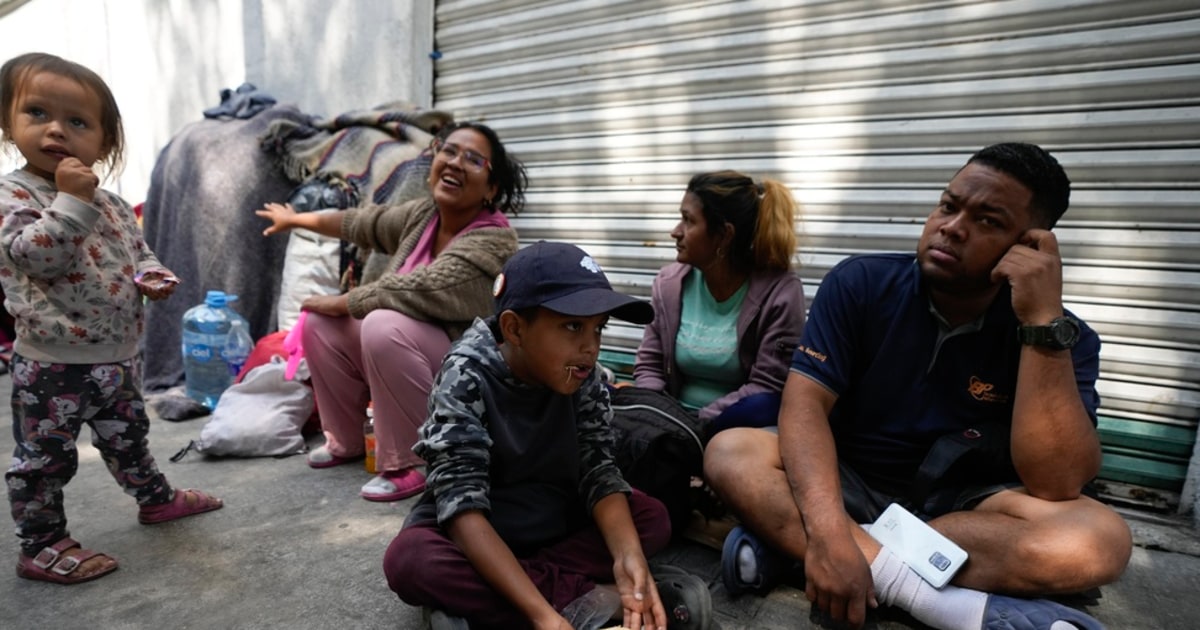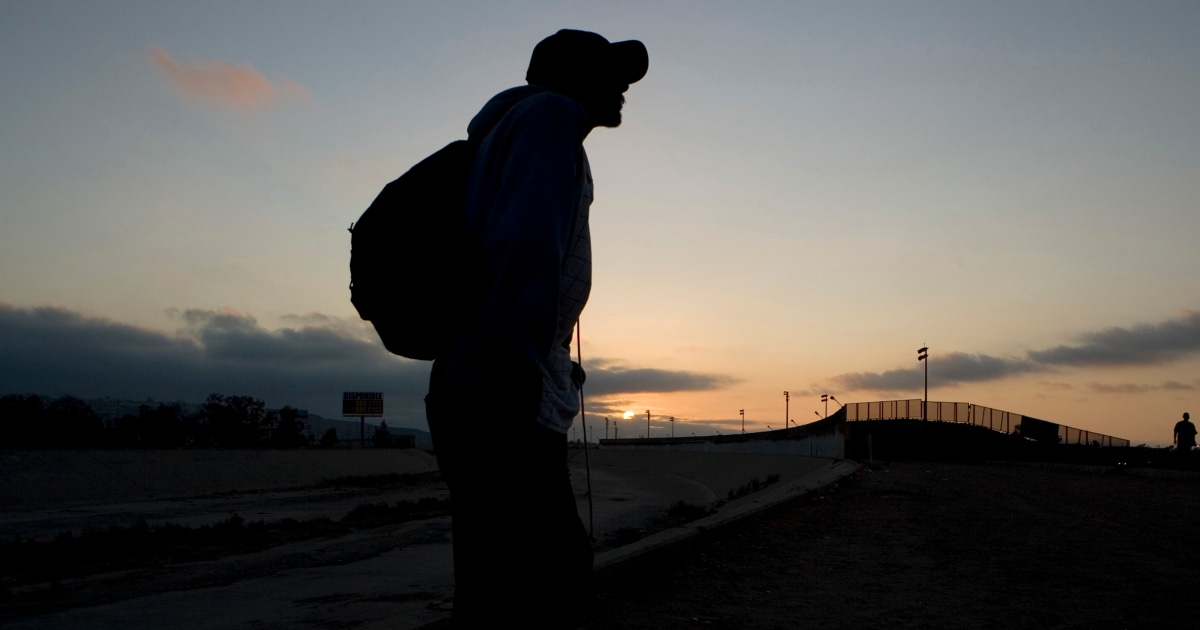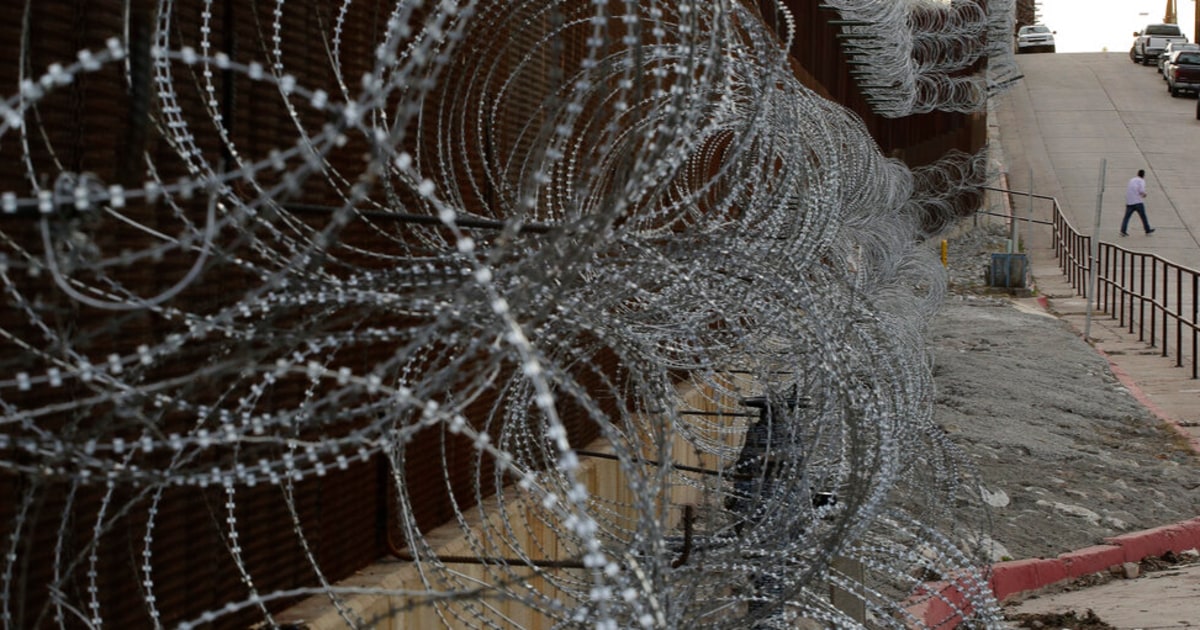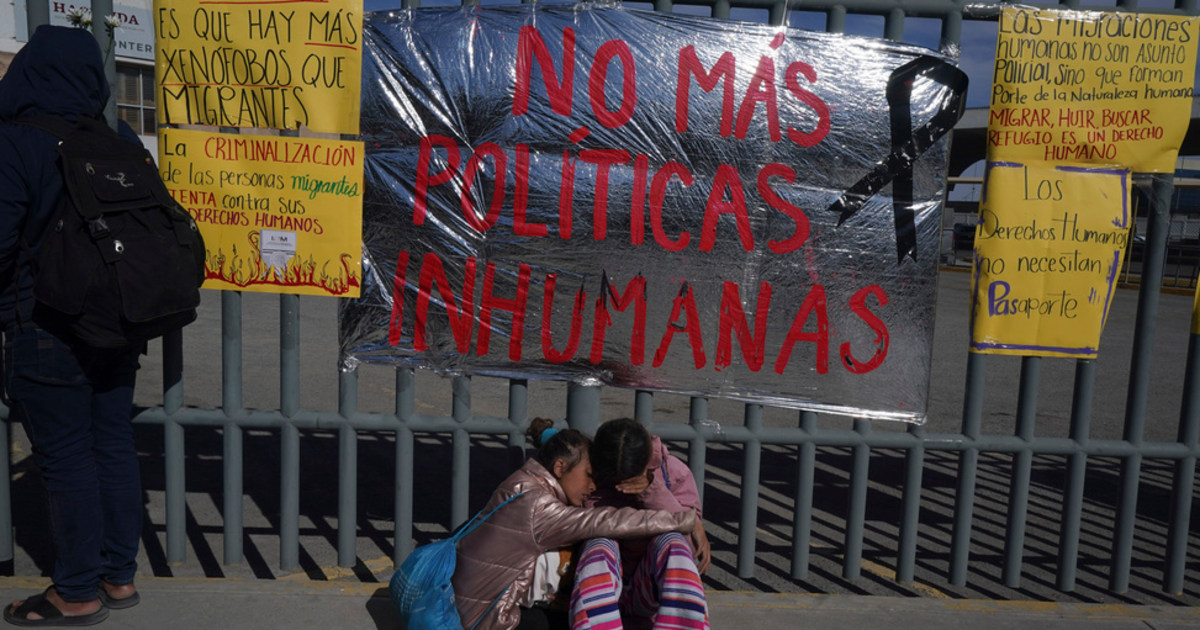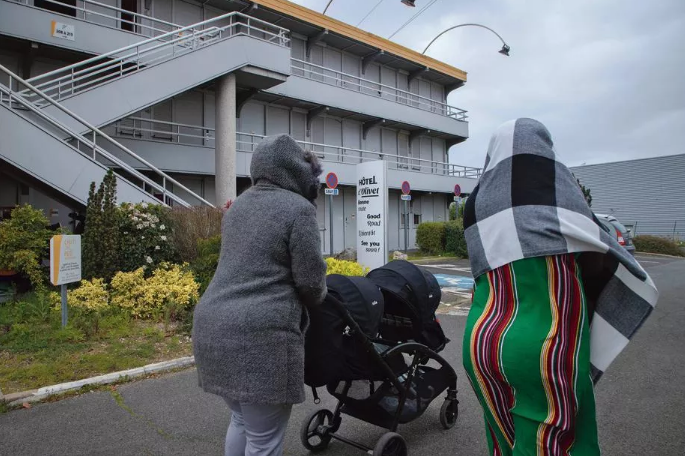- Click to share on Facebook (Opens in a new window)
- Click to share on Twitter (Opens in a new window)
- Click here to share on LinkedIn (Opens in a new window)
- Click to email a friend (Opens in a new window)
Washington (CNN) - The whereabouts of thousands of immigrants waiting in Mexico for their next court date in the United States are unknown, according to the lawyers' accounts and data analyzed by CNN.
About 55,000 migrants, many of whom are from Central America, have been sent back to Mexico as part of a policy of the Donald Trump government that requires them to wait in that country until the date scheduled to go to a court in the United States.
The presence of an individual in court on the established date is one of the few accounting mechanisms for the population of people who have fallen under this policy. But as those dates approach, many migrants, often waiting in dangerous conditions in Mexico, do not appear, which partly highlights the unsustainable conditions along the southern border.
Half of the people waiting in Mexico for a scheduled court date were not present at their last hearing, according to data from the Transaction Records Access Information Center (TRAC) at Syracuse University, which Track immigration court data.
To compare, almost 90 percent of immigrants in the United States attended their court hearing, according to TRAC.
- Trump's government begins deporting asylum seekers to Guatemala
An immigration lawyer in Texas, Norma Sepúlveda, recalled the case of a young migrant woman who waited in northern Mexico for about three months before her first judicial hearing in the United States. During that time, she was sexually assaulted twice, Sepulveda said.
"He was so afraid that every time these men came through the door, he urinated for fear and could no longer bear it," he told CNN, Sepulveda, who represented the woman, referring to one of the shelters where he was she.
The woman, driven by fear, finally moved to the interior of Mexico and could not return to the United States for a follow-up hearing. His absence will now prevent him from being able to apply for asylum in the United States in the future.
She is one of the almost 17,136 people who were told to wait in Mexico, but did not show up at their last scheduled hearing, according to TRAC.
The reasons why someone might not return to the United States for their court hearing cover the entire range. Some people may not have a way to reach their respective point of entry and then be transported to the courts in the United States; some have been kidnapped or assaulted while waiting in Mexico; and others have chosen to return to their home country after experiencing difficult conditions in the camps, according to interviews with lawyers and immigrant advocates.
When asked for a comment on the TRAC figures, a spokesman for the Immigration Executive Office of the Department of Justice, which oversees the nation's immigration courts, said he could not comment on what happens to people. .
"The dataset that we make available to the public in the form of a raw dataset is provided as a resource and is not something that our office can help inform," said the Department of Justice.
The Trump administration implemented the so-called “stay in Mexico” policy amid an increase in the arrival of migrants to the southern border, arguing that it would deter migrants from traveling north.
Despite continuing legal challenges, a federal appeals court allowed the policy to continue. As a result, the policy has expanded across the southern border, subjecting more asylum seekers to the policy and, in many cases, returning them to dangerous conditions.
- Look: What are the rights of undocumented immigrants if ICE knocks on your door?
Migrants face obstacles to reach their audiences in the US. UU.
The Trump administration had said it planned to accelerate hearings for migrants who fell under politics. But even so, it can take weeks, if not months, for an individual's case to be resolved. And in the meantime, migrants often wait in miserable and insecure conditions in Mexico.
Some of the regions where migrants are placed on hold have been considered dangerous by the United States Department of State.
Human Rights First, a defense organization, has identified violent attacks against migrants that have been returned to Mexico in regular reports. In an October report, the group found more than 340 public reports of rape, kidnapping and torture, among other attacks against migrants waiting in Mexico.
In testimony before a House panel last month, Erin Thorn Vela, a lawyer for the Texas Civil Rights Project working with migrants in Matamoros, Mexico, recalled the kidnapping of a mother and her son.
"A mother and her little son were kidnapped less than an hour after the US government forcibly returned them to Matamoros," Thorn Vela told lawmakers. "They were tortured for 8 days."
The interim commissioner of Customs and Border Protection Mark Morgan has defended the policy despite the dangerous conditions.
“We continue working with the Mexican government. We provide them millions and millions of dollars to help with their humanitarian impulse that is there, ”Morgan told reporters earlier this month.
The administration offers a follow-up interview for migrants who say they are afraid of returning to Mexico, but only a small part meet the standard, according to CBP data obtained by CNN.
Even so, insecurity and sometimes unhealthy conditions have led some migrant families to send their children only across the US-Mexico border. The US Department of Health and Human Services. UU. (DHS) told CNN at the end of last month that it had identified approximately 135 children in its custody who previously reached the southern border with their family but are now alone in the United States.
"People who left thought a lot about why they left Central America have the ability to determine what situation they are in," said Kelly Overton, founder of Border Kindness, which helps transport migrants in Mexico to court of the United States on schedule. "In the end, can they get somewhere here where they can feed their children and their children are safe while they wait?"
- Look: Conditions for immigrant camps seeking asylum in the US worsen
'You literally can't wait'
Border Kindness has made more than 2,500 trips transporting more than 1,100 people from Mexicali to Tijuana for their immigration court in San Diego. Migrants report to U.S. officials at the border on the day of their hearing, where they are transported to a courtroom.
But cases are not resolved at a hearing. There are follow-up hearings to argue the merits of the case and the time it takes between hearings can wear down migrants. On the second or third trip back to Tijuana, more and more people stop showing up and decide to return to their home country or move to another part of Mexico, Overton said.
"You literally can't wait," Overton added. "You don't see an end in sight."
Immigration attorneys have warned that in some cases, documents provided to migrants sometimes contain locations and addresses of incorrect hearings and incorrect dates in court.
The Department of Justice told CNN that “immigration courts across the country can receive defective submissions for a variety of reasons,” and directed questions about the submissions to the Department of Homeland Security, which has not responded to a request for comment. .
Lawyers have also faced their own set of obstacles when trying to communicate with clients who are not in the United States. Sepulveda pointed out the difficulty of communicating with the young woman she represented and who did not have her own telephone.
Lawyers who have crossed into Mexico to help clients have had to take their own safety into account. Laura Peña, pro bono lawyer of the Immigration Commission of the American Bar Association, recalled during a House of Representatives hearing in November to take precautions when traveling to Mexico to visit clients, including crossing only during the day and coordinating with humanitarian groups or other colleagues in the area.
If it weren't for politics, your clients would probably be in the United States where they would receive legal advice at a lawyer's office or another private place.
However, not all migrants have a lawyer, which puts them at a disadvantage. Research has stressed the importance of access to counseling for immigrants. Research has shown that immigrants with lawyers are more likely to enter the United States.
- The United States may begin sending asylum seekers to some countries in Central America
Concerns about transparency in the immigration process
By expanding the so-called “stay in Mexico” policy earlier this year, the Trump administration built tents in Laredo and Brownsville, Texas, to serve as makeshift courts for immigrants waiting in Mexico until their court date. The judges in these cases preside over teleconference from other immigration courts several kilometers away.
US officials told CNN in June that temporary courts would allow migrants to have their hearings near or at the port, rather than being transported miles away.
But defenders, immigration attorneys and former immigration judges have been alarmed by the use of the tent facilities, arguing that it involves the judicial process in secret, since the public cannot enter.
Those concerns were exacerbated when the administration said it would start using one of its adjudication centers to hear cases. Until now, legal observers have been able to observe the procedures that are carried out at the store premises from the court where the judge is located. But adjudication centers, which serve as a center for immigration judges to enter cases remotely, are not open to the public.
More than a dozen former immigration judges recently sent a letter to the Director of the Executive Office for Immigration Review, James McHenry, partly underlining the importance of public access to immigration courts, calling it “vital for constitutional protections of respondents who appear in court. ”
Undocumented immigrants


